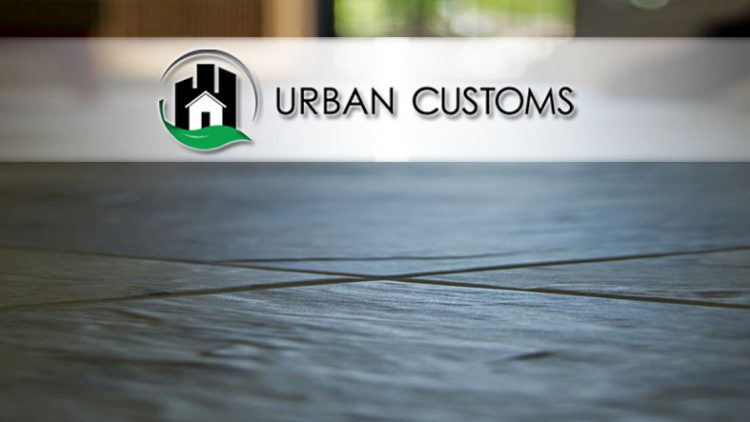Stone Flooring Costs 2024
The cost of stone flooring can vary greatly depending on several factors, including:
Type of stone: Different types of stone have different prices, with some of the more common options being:
- Granite: $5 – $20 per square foot (durable, heat-resistant, but can be prone to etching)
- Marble: $7 – $30 per square foot (luxurious, beautiful, but requires more maintenance)
- Slate: $5 – $15 per square foot (waterproof, naturally textured, but can be fragile)
- Limestone: $3 – $10 per square foot (porous, good for rustic styles, but needs sealing)
- Travertine: $4 – $12 per square foot (popular for bathrooms, warm tones, but can be slippery)
Here’s a breakdown of potential costs associated with stone flooring:
- Cost of Stone Material:
- Natural Stone: Natural stone flooring materials such as marble, granite, limestone, travertine, and slate vary in price depending on factors such as rarity, quality, and source. Prices can range from $5 to $30 or more per square foot for the material alone. Exotic or premium-quality stones may command higher prices.
- Engineered Stone: Engineered stone, also known as composite stone or quartz, is made from a mixture of natural quartz crystals and resins. Engineered stone flooring can range in price from $10 to $150 or more per square foot, depending on the brand, style, and quality of the material.
- Installation Costs:
- Labor Costs: Labor costs for installing stone flooring can vary depending on factors such as the size and complexity of the project, the type of stone used, and local labor rates. Installation costs typically include surface preparation, laying the stone tiles, grouting, and sealing. Labor costs can range from $5 to $15 or more per square foot, depending on the scope of the work.
- Additional Materials: In addition to labor costs, you may need to budget for additional materials such as adhesive, grout, mortar, and sealant. These materials can add several dollars per square foot to the overall cost of the project.
- Subfloor Preparation:
- Subfloor Repair: Depending on the condition of the existing subfloor, you may need to repair or replace damaged or uneven subflooring before installing stone flooring. Subfloor repair costs can vary depending on the extent of the damage and the materials required.
- Leveling: If the subfloor is not level, it may need to be leveled before installing stone flooring to ensure a smooth and even surface. Leveling costs can vary depending on the size of the area and the leveling method used.
- Additional Costs:
- Delivery and Transportation: If you’re purchasing stone flooring materials from a supplier, you may need to budget for delivery and transportation costs, especially for large quantities or heavy materials.
- Finishing Touches: Depending on your preferences and the requirements of the project, you may also need to budget for finishing touches such as trim pieces, thresholds, and transition strips.
Here are some average costs to give you an idea:
- 500 sq ft of granite: $5,000 – $20,000 (installed)
- 1,000 sq ft of travertine: $4,000 – $12,000 (installed)
- 200 sq ft of marble bathroom floor: $2,800 – $6,000 (installed)
Ways to save on stone flooring:
- Choose a less expensive type of stone: For example, slate is generally cheaper than granite.
- Buy larger quantities: You may be able to get a discount for buying in bulk.
- Install the stone yourself: This can save you a significant amount of money, but it is important to be sure you know what you are doing.
- Look for used stone: You can sometimes find good deals on used stone at salvage yards or online.
Pro’s and Con’s of Stone Flooring
Pros:
- Durability: Stone flooring is highly durable and can withstand heavy foot traffic, making it suitable for high-traffic areas like entryways, kitchens, and living rooms. With proper care, stone floors can last for decades or even centuries.
- Natural Beauty: Stone flooring adds a timeless and elegant look to any space with its natural variations in color, texture, and veining. Each stone slab or tile is unique, creating a one-of-a-kind flooring surface that enhances the aesthetic appeal of the room.
- Low Maintenance: Stone flooring is relatively easy to maintain and requires minimal upkeep compared to other flooring materials. Regular sweeping and mopping are usually sufficient to keep stone floors clean, and periodic sealing helps protect the surface from stains and moisture.
- Heat Resistance: Stone flooring is naturally heat-resistant, making it an excellent choice for rooms with radiant heating systems or areas exposed to direct sunlight. Stone floors stay cool in warm weather and can help regulate indoor temperatures.
- Versatility: Stone flooring comes in a variety of types, including marble, granite, limestone, travertine, slate, and quartz, offering homeowners a wide range of options to suit their preferences and design styles. Stone can also be cut and shaped into different sizes and patterns to create custom flooring designs.
Cons:
- Cost: Stone flooring tends to be more expensive upfront compared to other flooring materials like laminate, vinyl, or carpet. The cost of stone flooring depends on factors such as the type of stone, quality of the material, installation method, and labor costs.
- Porosity: Most natural stone flooring materials are porous and can absorb liquids if not properly sealed. This makes them susceptible to staining from spills, especially in areas like kitchens and bathrooms. Regular sealing is necessary to protect the surface and prevent staining.
- Hardness: While the durability of stone flooring is a benefit, it can also be a drawback for some people. Stone floors are hard underfoot and may not be as comfortable to stand on for long periods, especially in areas where people spend a lot of time standing, such as kitchens.
- Maintenance Requirements: While stone flooring is relatively low-maintenance, it does require periodic sealing to protect the surface from stains and moisture. Sealing frequency depends on factors such as the type of stone, level of foot traffic, and exposure to spills.
- Susceptibility to Damage: Despite its durability, stone flooring is susceptible to damage from heavy impact or sharp objects. Dropping heavy items or dragging furniture across stone floors can cause chips, cracks, or scratches, requiring repair or replacement.
Check out Urban Customs’ full offerings right here.[/vc_column_text][/vc_column][/vc_row]
Considering Stone Flooring Installation In Phoenix, Arizona?
Urban Customs is Phoenix, Arizona’s premier natural stone flooring installer with the experience and knowledge necessary to make your flooring installation a breeze. Check out our flooring installation services.
Contact us today to speak to one of our flooring experts and find which natural stone tile will work best for your project.
0


